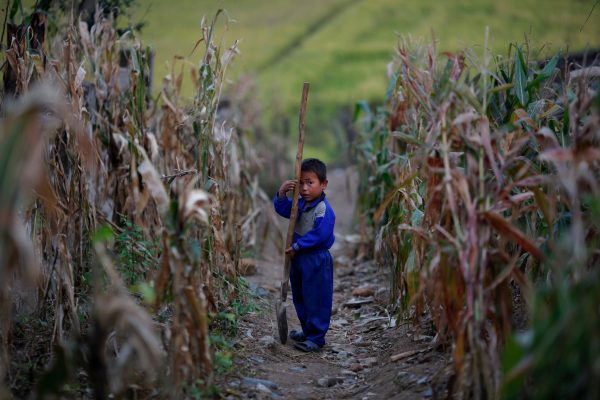Although not much is known about COVID-19 figures in the country, the economic consequences resulting from the government’s strict virus-containing measures have dealt a severe blow to ordinary citizens nationwide. The dire state of the economy is affecting the lives of ordinary people in various ways, especially in relation to food.
November is usually a month when Korean families (in both the North and South) come together and prepare kimchi for the winter months — a process called kimjang. North Koreans are no strangers to food shortages, but the economic woes of 2020 have resulted in even cabbages, a staple crop, being in low supply.
Due to low crop yields from typhoon damage, it is increasingly difficult for ordinary people to find and buy the cabbages necessary for kimjang. Cabbage prices in North Korea have risen about 25 per cent compared to last year. Making a large batch of kimchi now costs more than the average government-provided monthly salary.
Still, residents have even bigger things to worry about. According to sources inside the country, North Korean authorities have banned the sale of firewood in an effort to stem deforestation in the country. This news could not have come at a worse time as temperatures on the Korean Peninsula are already dropping quickly and winter is expected to start soon. Many residents will be unable to warm their houses without firewood, and the results could be fatal.
While stemming deforestation is an important measure to prevent future floods and further destruction, the short-term effects of such measures will significantly disadvantage ordinary people given the lack of other heating options. Reports of people freezing to death have already started circulating.
Besides a shortage of cabbage, the country is also seeing severe shortages of other crops. Although large quantities of vegetables were expected to become available at markets after the Autumn harvest, this did not eventuate.
Wealthier North Koreans and elites have reportedly been buying up and hoarding food in anticipation of food shortages next year. This is a double blow to ordinary people who are now suffering from bad harvests and hoarding by the upper classes. Some residents are so concerned they fear this winter will be worse than the famine that hit the country in the 1990s.
So, what is the government doing about it?
The North Korean government is encouraging citizens to conserve food and punishing those who waste it. As part of the country’s ‘food saving struggle’, the government is urging its people to eat less not only so they can survive but also to protect the ‘socialist system’. Citizens are also being warned not to needlessly waste grain by brewing alcohol and drinking socially. People caught risk facing serious legal punishment. To survive the harsh winter, many North Koreans will have to make what little food they have last as long as possible.
Given the dire economic situation, the government has limited capacity to dramatically turn the situation around. North Koreans are in urgent need of assistance but have nowhere to turn. Although international aid organisations are usually able to operate at least in a limited capacity in North Korea, this too has come to a halt due to the pandemic.
According to the UN Office for the Coordination of Humanitarian Affairs, the money raised among its members for North Korea remains less than a third of the amount required. The United Nations was only able to secure US$3.5 million in COVID-19 aid to North Korea, about 9 per cent of the target amount. This was the lowest rate of funding among Asia Pacific countries.
According to the UN Special Rapporteur for human rights in the Democratic People’s Republic of Korea, over 40 per cent of North Koreans were already food insecure prior to COVID-19, many of them suffering malnutrition and stunted growth. Given that the situation was already that bad before the pandemic hit, it’s difficult to imagine how ordinary people in North Korea are faring these days.
The coming months are likely to be one of the most difficult that the North Korean populace has ever faced. With bone-chilling temperatures, severe food shortages and an ongoing pandemic, North Koreans are in for a tough winter.
Gabriela Bernal is a PhD candidate at the University of North Korean Studies, Seoul.

